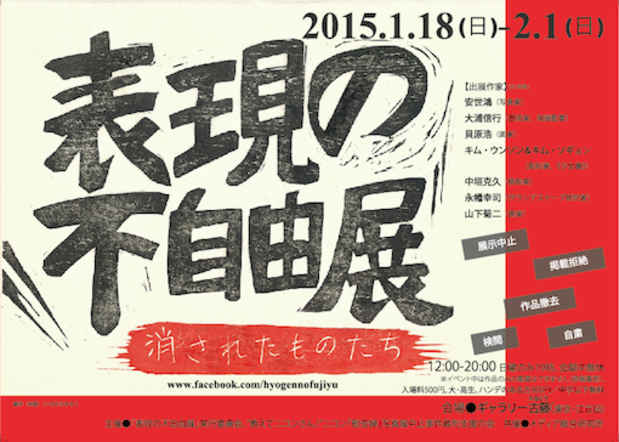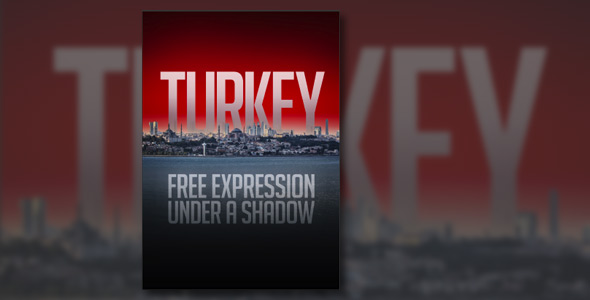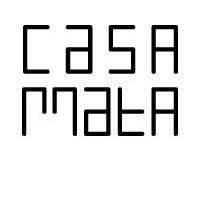News
Take a look at what's going on
in Oslo
this February in the ART MAP! section
http://www.seismopolite.com/Oslo
Un-free Expression - What Has Been Lost
Gallery Furuto

From the Emperor and war, colonial control, comfort women, Yusukuni Shrine, criticism of the nation, Article 9 to nuclear power and sexual expression…the inclusion of these topics in any form of expression may lead to censorship, suppression, self-restraint, cover-ups and taboo.
Here a range of expressions covering painting, sculpture, photography, film, TV programs and literature are brought together to question what freedom of expression is and what it means to lose this freedom.
"The rare exhibition, titled “Hyogen no Fujiyu Ten” (“Exhibition of Unfreedom of Expression”) is designed to showcase what have been considered taboos in Japan despite the freedom of expression guaranteed by the postwar Constitution." (See article in Japan Times, January 22, 2015: "Self-censorship is biggest threat to free speech in Japan")
The exhibition can be visited at Gallery Furuto, Tokyo, until February 1
More information: http://www.tokyoartbeat.com/event/2015/B35B
About the venye: http://www.tokyoartbeat.com/venue/02C4D771
Gallery homepage: http://furuto.art.coocan.jp/
Cuba: Performance artist Tania Bruguera detained twice
On 30 December 2014, several Cuban dissidents – journalists, activists and artists – were arrested, including artist Tania Bruguera who played a key role in organising a free speech event on the day. She was released soon after, and then detained and released again a second time.
A note posted on Facebook stated: “Bruguera may not leave Cuba in the next 2-3 months. They have pressed charges against her for resistance and disruption of public order.
The Cuban artist Tania Bruguera is already back to her house, at Havana’s neighborhood El Vedado. She has been released for a second time, after having a lengthy conversation with Seguridad del Estado (…)”
Open letter
On 17 December 2014, Tania Bruguera sent an open letter to Cuban president Raúl Castro, American president Barack Obama and the Pope, and a free speech campaign sprung up from its key phrase, “I also demand” – #YoTambienExijo.
Tania Bruguera was due to stage an open-microphone event on 30 December at La Plaza de la Revolución – Havana’s most politically sensitive square – to call for the political, economic, cultural and civil rights of Cuban citizens.
“#YoTambienExijo will gather, without violence and without fear, at La Plaza de la Revolución to transform it into a space of respect for diversity of opinions about what kind of country we want to build. True freedom means tolerance,” wrote the organisers.
Police had denied a permit for the #YoTambienExijo demonstration and warned activists not to participate, but several had indicated their willingness to participate in this as a test case for public dissent. The event was deemed a “political provocation” by Cuban officials.
A reenactment
The open-microphone event was a reenactment of Tania Bruguera’s art-action ‘Tatlin’s Whisper #6’ which was staged at the 10th Havana Biennial in 2009 without any objections. The idea is to invite members of the public to use the microphone to speak their mind for one minute only. Bruguera specifies in her instructions for the piece, that this is a peaceful action with the purpose of creating an opportunity to discuss the current situation publicly and without censorship.
In the wake of the U.S.-Cuba diplomatic thaw, Tania Bruguera’s intent was to stage a similar happening in Havana’s Revolution Square on 30 December. That never happened, though, since the artist, along with reportedly at least 12 other dissidents, were detained hours before the event could take place.
Says Freemuse Executive Director, Ole Reitov: “Freemuse expresses great concern of the detainment of Tania Bruguera and request the Cuban authorities to immidiately and unconditionally release Ms Bruguera. Freemuse would like to remind the Cuban government of its obligations to respect universal rights to artistic expressions.”
Freemuse received news that Tania Bruguera was kept under some form of arrest all through 30 December 2014. On her own account, she was harassed to sign self-accusation documents that claimed she intended to disturb peace and resisted the police. She was not physically injured, but in response to her arrest and the lack of information, she refused to eat through her imprisonment.
At 2pm on 31 December, she was released from detention, and called for a press conference by 4pm. She was able to give two interviews with international correspondents before she was again detained on her way to the presentation.
She was again detained by police for several hours and was finally released at 8pm. Her passport and computers were seized without any indications of their legal status. Tania Bruguera has demanded the authorities to release the rest of the people who were detained around her action.
UN artistic freedom expert
In 2012, Tania Bruguera was a member of a special experts panel invited by the UN Special Rapporteur Ms Farida Shaheed to qualify the forthcoming report on artistic freedom. Ms Bruguera was also invited to the UN headquarters in June 2013 by the Special Rapporteur when the report was launched.
Tania Bruguera researches ways in which art applies to everyday political life by transforming social affect into political effectiveness. She has received the Meadow Prize, a National Museum of Wales Award, a Prince Claus Award, a Guggenheim Fellowship, among others.
» MSNBC – 31 December 2014:
#YoTambienExijo: Cuban dissidents detained ahead of gathering
TV news segment with an analysis by Miami Herald’s Nora Gámez Torrez.
» Follow the latest news on Twitter:
#YoTambienExijo
#TaniaBruguera
» Follow the latest news on Facebook:
www.facebook.com/YoTambienExijo
www.facebook.com/events/1515487705372907
» The open letter of 17 December 2014 by Tania Bruguera:
www.taniabruguera.com (PDF)
» Three audio declarations by Tania Bruguera:
www.soundcloud.com/yotambienexijo
» Centre For The Aesthetic Revolution:
Tania Bruguera, #Yotambienexijo, A Call For Freedom Of Speech At Revolution Square In La Habana
» Los Angeles Times – 31 December 2014:
Cuban artist Tania Bruguera released but detained again
» The Guardian – 31 December 2014:
Cuban dissidents arrested before free-speech demonstration in Havana
Antonio Rodiles, Eliezer Avila and Reinaldo Escobar reportedly detained. Government action will test newly restored diplomatic relations with US
» Tania Bruguera’s home page:
www.taniabruguera.com
» Interview with Tania Bruguera, recorded at the conference All That is Banned is Desired in Oslo in 2012.
» See also: Tania Bruguera’s presentation at the conference
Source: http://artsfreedom.org
December 2, 2014
Norwegian Pen publishes report about freedom of expression in Turkey

The Norwegian PEN has published a special report titled ‘Turkey: Free Expression Under a Shadow’.
The 60-page report examines data and information related to violations of freedom of expression, the effects of the judicial system and the law on freedom of expression, self-censorship, the pressure on press, hate speech and freedom of religion and conscience.
The report was written by Sara Whyatt who also directed its research. It is based on extensive interviews carried out by Ceylan Begüm Yildiz and Esra Almas, with writers (16), academics (12), editors/ journalists or publishers (7), workers in NGOs, civil society or arts organisations (9), translators (3), artists (2), students 4, as well as other professions.
The full report may be accessed through the following link:
www.norskpen.no/Portals/0/Turkey Report final.pdf
Source: freemuse.org
Conference: “Sealed Gate: Prospects of the Turkey-Armenia Border”
The conference “Sealed Gate : Prospects of the Turkey-Armenia Border” organised by the Hrant Dink Foundation and Ankara University, Faculty of Political Science, Department of Economics was held in Ankara on November 22-23, 2014. The two-day conference featured 9 panel sessions and 27 presentations and was live streamed on the Foundation’s website www.hrantdink.org
The conference “Sealed Gate : The Prospects of the Turkey-Armenia Border” was opened with the welcoming addresses by the Hrant Dink Foundation President Rakel Dink, Foundation’s Board Member Cengiz Aktar and the Chair of the Department of Economics, Faculty of Political Science of Ankara University Prof. Dr. Onur Özsoy. The first day of the conference was dedicated to the theme of “sealed border” in the local and global context.
In her welcoming address, Rakel Dink noted, “We want to overcome all borders that take people hostage and keep them away from their conscience.” Cengiz Aktar underlined that all the scientific researches and symposiums undertaken by the Hrant Dink Foundation up until now had focused on memory and conscience calling for reason and that this particular conference was also a platform to open eyes and channels to move forward. In his welcoming address, Prof. Dr. Onur Özsoy made an appeal and said “Let us open borders for peace and stability.” The historical background of the sealed border, the stories of people living in the border regions, and the “Nagorno-Karabakh conflict” - a barrier before the Turkey-Armenia normalisation process - were amongst the topics that were discussed in the first day of the conference.
The panel “Sealed Border and Neighbours” chaired by Ahmet İnsel as well as the panel “Sealed Border Beyond Neighbours” chaired by Soli Özel focused on the Nagorno-Karabakh conflict between Armenia and Azerbaijan and discussed the implications of the conflict on the Turkey-Armenia normalisation process. Thomas de Waal, senior associate at the Carnegie Endowment for International Peace and the author of the book Black Garden recently published in Turkish by the Hrant Dink Foundation Publications, pointed out to the importance of the conflict noting, “The Nagorno-Karabakh conflict which sealed Armenia’s border with two neighbouring countries is not a frozen conflict. On the contrary, it is a living conflict which continues to claim lives even today. If there is no peace deal and if the tension escalates further, the conflict will have destructive consequences.”
In its second day, the Sealed Gate conference discussed possible cross-border economic cooperation opportunities as well as the socio-economic impact of the Turkey-Armenia border. The panel “Open Borders, Open Markets” chaired by Kemal Kirişci featured a presentation by Ussal Şahbaz from the Economic Policy Research Foundation of Turkey (TEPAV) who presented the opportunities offered by open borders for entrepreneurs. Zümrüt İmamoğlu from Bahçeşehir University Center for Economic and Social Research (BETAM) presented the findings of the “Research on the Socio-Economic Impact of the Turkey-Armenia Border” conducted by the Hrant Dink Foundation, BETAM and Social Research Center (SAM) and elaborated on the negative socio-economic impact of the sealed border in the region.
The panels “Open Borders, Open Minds” chaired by the journalist Amberin Zaman and the Director of the Armenian Communities of the Calouste Gulbenkian Foundation Razmik Panossian shed light on the cultural diversity of the border regions including their language and music.
The panel “Beyond Open Borders” chaired by Asaf Savaş Akat discussed the prospects of civil society dialogue and track two diplomacy between Turkey and Armenia in the context of the sealed border.
The last panel session of the conference “Sealed Gate : The Prospects of the Turkey-Armenia Border” was chaired by Marc Pierini, former head of the Delegation of the European Union to Turkey who is currently a visiting scholar to Carnegie Europe. The panel titled “The Prospects for Open Borders” elaborated on the possibilities of local development initiatives that could help the region to realise its cross-border potential as well as possibilities for settlement of conflicts in the Caucasus.
The conference ended with an evaluation session that featured assessments on the prospects of the sealed Turkey-Armenia border by Cengiz Aktar, Board Member of the Hrant Dink Foundation and Salpi Ghazarian, the President of the Board of Directors of Civilitas Foundation - a think tank and media organisation based in Armenia. According to Aktar, “1915 drew mental borders and created a status quo; however the genie is already out of the bottle and one cannot put the genie back in the bottle.”, whereas Ghazarian noted “We are aware that the last decade is different than the previous 90 years. We have to move forward and beyond the discourse of ‘We share the same food, we share the same culture’ and we need to undertake bigger steps.” While reminding the responsibility of states, the evaluation session emphasised that the only way to overcome borders is the contacts between the peoples of the two countries as well as efforts and demands in this respect.
The panel sessions of the conference “Sealed Gate : Prospects of the Turkey-Armenia Border”, held in Ankara University, Cebeci Campus, Aziz Köklü Conference Hall, were watched online by 1,920 people on the Foundation’s website www.hrantdink.org and will be uploaded to the YouTube channel of the Hrant Dink Foundation in the coming days.
More Articles...
- Call for papers, issue 10: The politics of art and art scenes in Latin America
- Norway: Oslo World Music Festival & seminar with Hugh Masekela on music and democratization in South Africa
- Egypt: Study on censorship of artistic expression published by AFTE and Freemuse
- Morocco: Open letter to Moroccan minister about El Haqed
- Appendix
- Seismopolite call for papers: Art and Freedom of Expression
- The Fear of Art, the 32nd Social Research conference, February 12-13, 2015
- Nicolas Bourriaud: Notes for The Great Acceleration, Taipei Biennial, September 13 - January 4
- Gwangju Biennale Foundation's President resigns in controversy over satirical painting
Page 1 of 7










